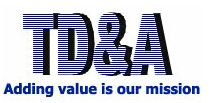1. What is RCS?
RCS stands for Recycled Claim Standard, developed by Textile Exchange (USA). It is a voluntary standard used to verify products containing recycled materials and to ensure transparency in the supply chain through the Content Claim Standard (CCS) management system.
RCS focuses on:
- Verifying the percentage of recycled content in a product (minimum 5%);
- Tracking the product journey from raw materials to final product;
- Providing reliable information to support transparent environmental claims.
2. Purpose of RCS
RCS was created to:
- Increase the credibility of products containing recycled materials;
- Support businesses and brands in achieving supply chain transparency;
- Encourage the market to adopt recycled materials and reduce virgin resource extraction;
- Contribute to global sustainability goals.
3. RCS Certification Levels
Currently, RCS offers two main levels of certification:
- RCS 100:
- Applies to products containing at least 95% recycled materials;
- Allows the use of the “RCS 100” label on products and packaging.
- RCS Blended:
- Applies to products containing a minimum of 5% recycled content;
- The label must clearly indicate the exact percentage of recycled material (e.g., “30% recycled content”).
4. Key Requirements of RCS
4.1. Recycled Material Content
- Products must contain at least 5% recycled materials to qualify for RCS certification;
- The origin of recycled content must be specified as pre-consumer or post-consumer.
4.2. Chain of Custody Management System
- Compliance with the Content Claim Standard (CCS) is required;
- Every organization in the supply chain (from raw material suppliers to final manufacturers) must be RCS certified;
- Clear records and evidence must be maintained to ensure traceability.
4.3. Third-Party Auditing and Certification
- Certification is conducted by independent third-party bodies approved by Textile Exchange;
- Periodic audits are required to ensure continued compliance with the standard.
5. Benefits of Applying RCS
- Enhanced product credibility: Helps consumers distinguish genuinely recycled products from unverified claims;
- Supply chain transparency: Enables better control over raw materials and manufacturing processes;
- Market access: Many international buyers, especially in the EU, US, and Japan, require certified recycled content;
- Brand value enhancement: RCS certification demonstrates a commitment to sustainability;
- Foundation for advanced certifications: RCS serves as a stepping stone towards GRS (Global Recycled Standard).
6. Who Should Use RCS?
RCS can be applied to any company within the recycled product supply chain, especially:
- Producers of recycled materials: such as recycled polyester, cotton, nylon, plastics, etc.;
- Textile, packaging, plastic, furniture, and footwear manufacturers using recycled inputs;
- Fashion and consumer brands aiming to demonstrate a commitment to sustainability;
- Exporters targeting markets that require international recycling certifications.
Conclusion
The Recycled Claim Standard (RCS) is more than just a certification — it’s a powerful tool for building a green, transparent, and sustainable brand. If your business seeks to demonstrate environmental responsibility and elevate the value of recycled products, RCS is the certification you need.

